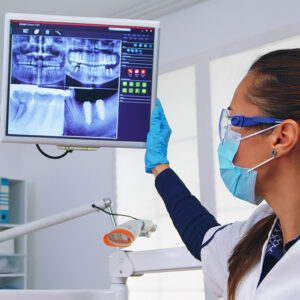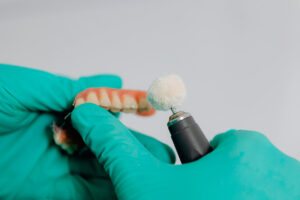When preparing for a dental procedure, it’s essential to have a clear understanding of what to expect. Whether you’re considering a routine cleaning or a more complex treatment like All-on-4 dental implants or Dental Veneers, asking the right questions can make all the difference. Knowing the questions to ask your dentist not only puts your mind at ease but also helps you make informed decisions about your oral health.
Interested in knowing more about the All-On-4 Procedure? Check out our blog: Discover the benefits of All-on-4 dental implants in Colombia
Imagine walking into your dentist’s office, not just as a patient, but as an informed partner in your dental care. This approach empowers you to discuss various treatment options, the dentist’s experience, potential risks, and even the recovery time involved. According to the American Dental Association, being proactive in your dental care conversations can significantly enhance your treatment outcomes and satisfaction.
At Aleriom, we understand that navigating dental procedures can be daunting, especially when considering treatments in a new country. Our mission is to connect U.S. residents with top-tier dental professionals in Colombia, ensuring a seamless experience from consultation to recovery. By asking the right questions, you ensure that your journey to a healthier smile is as smooth and informed as possible.
In this blog post, we will dive deeper into the most critical questions to ask your dentist before undergoing any dental procedure. From understanding the costs involved to knowing the expertise of your dental team, we’ve got you covered. Stay tuned as we guide you through each step, helping you feel confident and prepared for your next dental visit.
Understanding Treatment Options and Dentist’s Experience
When considering a dental procedure, understanding the available treatment options and your dentist’s experience is crucial. This knowledge not only helps in making informed decisions but also ensures that you receive the best care tailored to your specific needs. Discussing your overall dental health and specific treatment plans can significantly impact your treatment outcomes.
Exploring Different Treatment Options
Dental procedures can range from routine cleanings to more complex treatments like All-on-4 dental implants or porcelain veneers. Each option has its benefits, and understanding these can guide you in choosing the right path for your oral health. Here are some common treatment options:
- All-on-4 Implants: A permanent solution for those who have lost most of their teeth. This option provides a full set of teeth with just four implants, offering a natural look and feel.
- Porcelain Veneers: Ideal for those looking to enhance their smile aesthetically. Veneers can correct discoloration, chips, or minor misalignments.
- Dental Crowns: Used to restore damaged teeth, crowns provide strength and improve appearance.
- Teeth Whitening: A cosmetic procedure to brighten your smile, often done in-office for immediate results.
Each treatment has its specific advantages, and discussing these with your dentist allows you to weigh the pros and cons effectively. For instance, if you’re considering a smile makeover, understanding the difference between veneers and bonding can help you choose what best suits your needs.
Assessing Your Dentist’s Experience
The success of dental procedures often hinges on the dentist’s experience and expertise. A dentist with a proven track record in performing specific treatments can offer better outcomes and minimize risks. Here are some questions to consider:
- How many similar procedures have you performed?
- What is your success rate with this treatment?
- Can you provide before-and-after photos of previous patients?
- What are the potential risks and complications?
By asking these questions, you gain insight into the dentist’s proficiency and comfort level with the procedure. This information can reassure you and help set realistic expectations for your treatment journey.
In conclusion, understanding your treatment options and assessing your dentist’s experience are pivotal steps in preparing for a dental procedure. By being proactive and informed, you can ensure a smoother and more successful dental experience. For more information on dental procedures and expert consultations, explore our website.
Evaluating Risks and Recovery Time
Before undergoing any dental procedure, it’s crucial to have a comprehensive understanding of the potential risks and recovery time involved. This knowledge not only helps you prepare mentally and physically but also ensures that you can make informed decisions about your dental health. Engaging in a detailed discussion with your dentist about these aspects can significantly enhance your treatment experience and outcomes.
Every dental procedure, carries inherent risks. Understanding these risks and the expected recovery time can help you plan accordingly and manage your expectations. Let’s explore some common concerns and questions you might want to address with your dentist.
What Are the Common Risks Associated with Dental Procedures?
Dental procedures, while generally safe, can have potential risks that vary depending on the complexity of the treatment. Here are some common risks you might encounter:
- Infection: Post-procedure infections can occur if proper oral hygiene is not maintained.
- Bleeding: Some procedures might result in prolonged bleeding, especially if you have underlying health conditions.
- Swelling and Discomfort: Swelling is a common side effect, often accompanied by discomfort or pain.
- Nerve Damage: In rare cases, procedures involving the jaw or teeth can lead to temporary or permanent nerve damage.
- Allergic Reactions: Some patients may experience allergic reactions to anesthesia or other materials used during the procedure.
Discussing these risks with your dentist allows you to understand the likelihood and severity of each, enabling you to prepare and take preventive measures where possible.
How Long Is the Recovery Period?
The recovery time for dental procedures can vary significantly based on the type of treatment and individual patient factors. Here are some general guidelines:
- Routine Procedures: Cleanings and fillings typically require little to no recovery time, allowing you to resume normal activities almost immediately.
- Moderate Procedures: Treatments like root canals or extractions may require a few days of recovery, during which rest and proper oral care are essential.
- Complex Procedures: Surgeries such as All-on-4 implants might necessitate several weeks of recovery, with follow-up visits to monitor healing.
Understanding the expected recovery time helps you plan your schedule and make necessary arrangements, such as taking time off work or arranging for assistance at home if needed.
What Can I Do to Ensure a Smooth Recovery?
To facilitate a smooth recovery, consider the following tips:
- Follow Post-Procedure Instructions: Stick to your dentist’s guidelines regarding diet, medication, and oral hygiene.
- Rest Adequately: Allow your body time to heal by getting sufficient rest and avoiding strenuous activities.
- Maintain Oral Hygiene: Keep your mouth clean to prevent infections, but be gentle around the treated area.
- Monitor for Complications: Stay alert for signs of complications, such as excessive bleeding or severe pain, and contact your dentist if they occur.
By discussing these aspects with your dentist, you can better prepare for the procedure and recovery, ensuring a more comfortable and successful dental experience. For more information on dental procedures and expert consultations, send us a message and we’ll be more than happy to help.
Understanding Costs and Financial Options
When considering a dental procedure, understanding the costs involved is crucial. Dental treatments can vary widely in price, depending on the complexity and the materials used. For instance, procedures like All-on-4 dental implants and porcelain veneers are significant investments, and knowing their costs can help you budget effectively. Discussing financial aspects with your dentist ensures transparency and allows you to explore all available options.
Cost transparency is not just about knowing the price tag. It’s about understanding what you’re paying for and ensuring that there are no hidden fees. This is especially important if you’re considering dental tourism in places like Colombia, where prices can be significantly lower than in the U.S. At Aleriom, we provide comprehensive packages that include your entire dental treatment, accommodation and transportation, making it easier for you to plan your dental journey.
Typical Costs for Common Procedures
Let’s delve into some typical costs associated with popular dental procedures:
- All-on-4 Implants: In the U.S., this procedure can cost between $20,000 to $30,000 per arch. However, at Aleriom in Colombia, it starts at $6,500 for a single arch.
- Porcelain Veneers: In the U.S., veneers can range from $1,000 to $2,500 per tooth. In Colombia, you can get a full set of 10 veneers starting at $3,500.
These examples highlight the potential savings of seeking dental care abroad, without compromising on quality.
Exploring Financial Assistance Options
Financing your dental procedure can be made easier by exploring various financial assistance options. Many dental clinics offer payment plans that allow you to spread the cost over several months. Additionally, some insurance plans may cover part of the procedure, especially if it’s deemed medically necessary.
It’s essential to discuss these options with your dentist and insurance provider. Ask questions like:
- Is this procedure covered by my insurance?
- What payment plans do you offer?
- Are there any discounts for upfront payments?
By understanding these financial options, you can make informed decisions and avoid unexpected expenses.
Comparing Costs and Options
To better understand the financial landscape, here’s a comparison table highlighting the costs and options available:
| Procedure | Cost in the U.S. | Cost with Aleriom in Colombia | Payment Options |
|---|---|---|---|
| All-on-4 (Single Arch) | $20,000 – $30,000 | $6,500 | Insurance, Payment Plans |
| Porcelain Veneers (10 Teeth) | $10,000 – $25,000 | $4,000 | Insurance, Payment Plans |
This table provides a clear view of the potential savings and financial options you can explore when planning your dental procedure.
Understanding the costs and financial options available to you is a vital step in preparing for a dental procedure. By asking the right questions to ask your dentist, you can ensure a smooth and financially manageable experience. For more details on how Aleriom can assist you in achieving your dream smile affordably, visit our website.
Empower Your Dental Decisions with the Right Questions
Embarking on a dental procedure can feel daunting, but asking the right questions to ask your dentist empowers you to make well-informed decisions about your oral health. Whether you’re contemplating a getting your dental care at home or in a new country, understanding the treatment options, risks, and costs is crucial. This proactive approach not only enhances your treatment outcomes but also ensures your peace of mind.
Consider these key takeaways to guide your next dental consultation:
- Explore Treatment Options: Discuss various procedures available to you, such as veneers or dental implants, and understand their benefits to choose the best fit for your needs.
- Assess Your Dentist’s Experience: Inquire about your dentist’s experience with the procedure, success rates, and view before-and-after photos to gauge their expertise.
- Understand Risks and Recovery: Clarify potential risks and the expected recovery time to prepare adequately for your treatment and ensure a smooth recovery.
- Discuss Financial Aspects: Gain transparency on costs and explore payment options or insurance coverage to manage your budget effectively.
By engaging in detailed discussions with your dentist, you can navigate the complexities of dental procedures with confidence. At Aleriom, we are dedicated to assisting U.S. residents in achieving their dream smiles affordably and with top-tier care. If you’re considering dental work abroad, we invite you to explore our comprehensive services in Colombia.
Don’t hesitate to initiate these conversations with your dentist at your next appointment. Your proactive approach can significantly impact your dental health journey and outcomes. For more resources and expert consultations, visit our website and take the first step towards a healthier, more confident smile.
Wondering how long All-on-4 dental implants last? If you’re considering the All-On-4 Procedure as your transformative dental solution, understanding its durability is key. The protocol offers a revolutionary approach to dental implants, providing a full-arch restoration using just four implants. But how long can you expect these implants to last, and what factors influence their lifespan?
In this blog post, we’ll explore into the lifespan of All-on-4 implants, exploring the key elements that contribute to their durability. From the quality of materials used to the importance of proper care and maintenance, we’ll cover everything you need to know to ensure your investment in a beautiful smile stands the test of time.
At Aleriom, our mission is to provide high-quality yet affordable dental solutions, connecting clients with top dentists in Colombia. We understand the significant financial commitment involved in dental procedures, which is why we prioritize using the best materials and techniques to maximize the longevity of your implants.
Join us as we explore the factors that affect the longevity of All-on-4 implants, offering practical tips on how to extend their lifespan and maintain optimal oral health. Whether you’re already considering this procedure or simply researching, this comprehensive guide will provide valuable insights to help you make informed decisions about your dental health.
Ready to dive in? Let’s start by understanding what makes the All-on-4 system unique and why it’s a preferred choice for many seeking a lasting dental solution.
Understanding All-on-4 Dental Implants
All-on-4 dental implants represent a groundbreaking solution for individuals seeking a full-arch restoration. This innovative approach uses just four implants to support a complete set of upper or lower teeth, offering a stable and long-lasting alternative to traditional dentures.
The All-on-4 system is particularly beneficial for those who have lost multiple teeth and are looking for a reliable and efficient way to restore their smile. Let’s delve into what makes All-on-4 dental implants unique, how they work, and the numerous advantages they offer.
What Are All-on-4 Dental Implants?
All-on-4 dental implants are a type of full-arch restoration that uses four strategically placed implants to support a fixed prosthesis. Unlike traditional implants that may require six to eight implants per arch, the All-on-4 technique maximizes the use of available bone, often eliminating the need for bone grafting.
Developed by Nobel Biocare, the All-on-4 procedure involves placing two implants at the front of the jaw and two at the back, angled at 45 degrees. This configuration provides optimal support and stability for the prosthetic teeth.
How Do All-on-4 Dental Implants Work?
The All-on-4 procedure begins with a thorough evaluation of the patient’s oral health and bone structure. Using advanced imaging techniques, the dentist plans the precise placement of the implants to ensure maximum stability and support.
During the surgery, the four implants are inserted into the jawbone. The two posterior implants are angled to avoid areas of low bone density and to provide better support. Once the implants are in place, a temporary prosthesis is attached, allowing the patient to leave the clinic with a functional set of teeth on the same day.
After a healing period of a few months, during which the implants fuse with the bone (a process known as osseointegration), the temporary prosthesis is replaced with a permanent one. This final prosthesis is custom-made to fit the patient’s mouth perfectly, providing a natural look and feel.
Benefits of All-on-4 Dental Implants
All-on-4 dental implants offer numerous benefits, making them a preferred choice for many patients:
- Immediate Results: Patients can leave the clinic with a full set of functional teeth on the same day as the surgery.
- Cost-Effective: Using only four implants per arch reduces the overall cost compared to traditional methods requiring more implants.
- Minimized Need for Bone Grafting: The angled placement of the posterior implants often eliminates the need for bone grafting, making the procedure less invasive.
- Enhanced Stability and Comfort: The fixed prosthesis provides better stability and comfort compared to removable dentures.
- Improved Oral Health: Implants stimulate the jawbone, preventing bone loss and maintaining facial structure.
According to Dr. Paulo Malo, the pioneer of the All-on-4 technique, “This approach offers a reliable and efficient solution for patients with significant tooth loss, providing both functional and aesthetic benefits.”
Studies have shown that All-on-4 implants have a high success rate, with research indicating a 98% success rate over ten years (Nobel Biocare study). This makes them a durable and long-lasting option for full-arch restoration.
For more information on the benefits of All-on-4 dental implants and how they can transform your smile, visit our website and explore our comprehensive dental solutions.
Factors Affecting the Longevity of All-on-4 Implants
The longevity of All-on-4 dental implants is influenced by various factors. Understanding these factors can help you maximize the lifespan of your implants and maintain optimal oral health. Let’s explore the key elements that impact All-on-4 longevity.
Patient Health
Your overall health plays a significant role in the success and longevity of All-on-4 implants. Conditions such as diabetes, osteoporosis, and autoimmune diseases can affect the healing process and the integration of the implants with the jawbone. It’s essential to manage these conditions effectively and maintain a healthy lifestyle to support the longevity of your implants.
For example, a study published in the Journal of Clinical Periodontology found that patients with well-controlled diabetes had similar implant success rates to non-diabetic patients. Therefore, managing chronic conditions is crucial for the long-term success of your All-on-4 implants.
Implant Materials
The materials used in All-on-4 implants significantly impact their durability and longevity. Titanium is commonly used for the implant posts due to its biocompatibility and strength. The prosthetic teeth can be made from various materials, including acrylic, porcelain, and zirconia.
Porcelain and zirconia are often preferred for their durability and aesthetic appeal. According to a study by the International Journal of Oral & Maxillofacial Implants, zirconia implants have shown excellent long-term success rates and resistance to wear and fracture. Choosing high-quality materials for your implants can enhance their longevity and overall performance.
Maintenance and Care
Proper maintenance and care are critical to extending the lifespan of your All-on-4 implants. Regular dental check-ups, professional cleanings, and good oral hygiene practices are essential. Brushing twice a day, flossing, and using an antibacterial mouthwash can help prevent infections and complications.
Additionally, avoiding habits such as smoking and excessive alcohol consumption can improve the longevity of your implants. Smoking, in particular, has been linked to higher implant failure rates due to its negative impact on oral health and healing. A study in the Journal of Clinical Periodontology reported that smokers had a significantly higher risk of implant failure compared to non-smokers.
By understanding and addressing these factors, you can maximize the longevity of your All-on-4 implants and enjoy a healthy, beautiful smile for years to come. For more information on maintaining your implants and other dental solutions, visit our website.
Comparing All-on-4 Implants to Other Dental Solutions
When considering dental restoration options, it’s essential to understand how All-on-4 implants compare to other available solutions. Each option has its unique advantages and potential drawbacks, making it crucial to evaluate them based on your specific needs and circumstances. In this section, we’ll explore how All-on-4 implants stack up against traditional dental implants, dentures, and other dental restoration methods.
All-on-4 Implants vs. Traditional Dental Implants
Traditional dental implants are a well-established solution for replacing missing teeth. However, they differ significantly from All-on-4 implants in several key areas:
- Number of Implants: Traditional implants typically require six to eight implants per arch, whereas All-on-4 uses only four strategically placed implants.
- Bone Grafting: Traditional implants often necessitate bone grafting if there is insufficient bone density. In contrast, the angled placement of the posterior implants in the All-on-4 technique usually eliminates the need for bone grafting.
- Procedure Time: All-on-4 implants offer a quicker solution, often allowing patients to leave the clinic with a full set of functional teeth on the same day. Traditional implants may require multiple surgeries and a longer healing period.
- Cost: Due to the reduced number of implants and surgeries, All-on-4 can be more cost-effective than traditional implants.
Overall, All-on-4 implants provide a less invasive, more affordable, and quicker solution compared to traditional dental implants, making them an attractive option for many patients.
All-on-4 Implants vs. Dentures
Dentures have been a common solution for tooth loss for many years. However, they come with certain limitations that All-on-4 implants address:
- Stability: Dentures can shift and move, causing discomfort and difficulty in eating and speaking. All-on-4 implants offer a fixed, stable solution that feels more like natural teeth.
- Bone Health: Dentures do not stimulate the jawbone, leading to bone loss over time. All-on-4 implants stimulate the jawbone, helping to maintain bone density and facial structure.
- Maintenance: Dentures require regular removal and cleaning, while All-on-4 implants can be cared for like natural teeth with regular brushing and flossing.
- Longevity: Dentures may need to be replaced or relined every few years, whereas All-on-4 implants are designed to be a long-term solution with proper care.
For those seeking a more permanent and comfortable solution, All-on-4 implants offer significant advantages over traditional dentures.
All-on-4 Implants vs. Other Dental Restoration Methods
Other dental restoration methods, such as bridges and partial dentures, also have their place in dental care. However, All-on-4 implants provide unique benefits:
- Comprehensive Solution: All-on-4 implants offer a full-arch restoration, whereas bridges and partial dentures typically address smaller areas of tooth loss.
- Durability: All-on-4 implants are known for their durability and high success rates. Bridges and partial dentures may require more frequent repairs and replacements.
- Aesthetic Appeal: All-on-4 implants provide a natural-looking smile that closely mimics real teeth. Bridges and partial dentures may not offer the same level of aesthetic appeal.
In summary, while bridges and partial dentures can be suitable for specific cases, All-on-4 implants offer a more comprehensive, durable, and aesthetically pleasing solution for full-arch restoration.
Maximizing the Lifespan of Your All-on-4 Implants
Investing in All-on-4 dental implants is a significant decision, and understanding how to maximize their longevity is crucial. Throughout this blog post, we’ve explored various factors that influence the lifespan of these implants, including patient health, the quality of materials used, and the importance of proper maintenance and care.
Key Takeaways:
- Patient Health: Maintaining overall health, managing chronic conditions, and leading a healthy lifestyle can significantly impact the success and longevity of your All-on-4 implants.
- Implant Materials: Choosing high-quality materials like titanium for implant posts and durable options like porcelain or zirconia for prosthetic teeth can enhance the durability and aesthetic appeal of your implants.
- Maintenance and Care: Regular dental check-ups, professional cleanings, and good oral hygiene practices are essential to prevent infections and complications. Avoiding harmful habits like smoking can also improve the lifespan of your implants.
By addressing these factors, you can ensure that your All-on-4 implants remain a long-lasting and reliable solution for restoring your smile. Remember, the longevity of your implants is not solely dependent on the procedure itself but also on your commitment to maintaining optimal oral health.
Ready to take the next step in your dental care journey? Visit our website for more information on All-on-4 implants and other dental solutions. Our team at Aleriom is dedicated to helping you achieve a healthy, beautiful smile that stands the test of time.
Have questions or need personalized advice? Don’t hesitate to reach out to our experts. We’re here to support you every step of the way.








